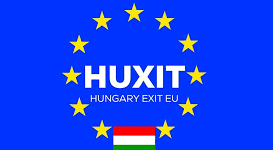EU member state governments, European Parliament and the Commission finally reached earlier this week a deal on the bloc’s 2020 budget, which is last in its current seven-year spending plan, with the next one facing tough scrutiny due to Brexit. The 2020 budget that is equal to one percent of the 28-nation bloc’s gross national income boosts spending on EU border protection, fighting climate change, and setting up the continent’s own satellite system. For the coming financial year, Brussels has committed to fund projects worth 168.7 billion euros, of which 21 percent will go to measures to fight climate change, 60 billion euros to support farmers, fisheries and biodiversity, and almost 59 billion euros to reduce economic and social differences between European regions.
Furthermore, research and innovation in the EU, youth education programs, small and medium-sized companies and Europe’s Galileo satellite scheme will receive financial support totaling almost 25 billion euros. Brussels has also earmarked another 14 billion euros to finance EU security, humanitarian aid and the newly created European border guard with an operational staff of 10,000 and equipment to manage the EU’s external borders. With the next seven-year budget for the 2021-2027 period, no agreement has yet been reached on whether the funding gap left by the UK exiting the EU after Brexit should be filled and by whom.
During their fierce negotiations over the budget, EU member states were initially gridlocked on several key issues. France, for example, was among the countries that believed the proposal from the European Commission to link 25% of all EU spending – including for external affairs – to climate objectives was insufficient. Migration was another area of dispute, with Hungary being the most vocal among a minority of countries that want to increase the Commission’s proposal for 10% of external spending to go toward this issue. There was also a disagreement over what falls under migration spending – whether governance and management, such as training law enforcement officials in northern Africa, or efforts to tackle the “root causes” that are pushing people to leave low-income countries.
Article Categories:
INSTITUTIONS & POLICY-MAKING






